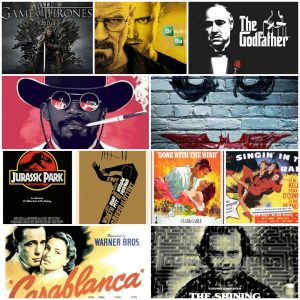Rucio was my pal, philosopher and pathfinder on that lonesome trudge to the unjust place. For many weeks, he walked without pomp and show. I fed him barley straw when the sun was hot, and hay when the sun had cooled down appreciably. After the rains, he foraged on green grass and fresh fodder. The rice that I carried with me lasted a fortnight. Soon, I resumed chewing of leaves and nibbling at berries and nuts. To slay time, I prattled about everything under the sun; I told the donkey about the love and the aches that I had savoured in my life. Rucio, my dear burro, used to bray sometimes at my stories: Eeyore, he often brayed pleading me to stop. But I never stopped and repeated my tales. One noon, I was lying under a tree and reading a treatise on philosophy. The book talked about man and matter, earth and heaven, death and life. But what entranced me the most was the section titled: Free Will. There I read about a paradox. I read how a donkey would die of indecision, if given a chance to choose between two equal things – like grass and water. I decided to check it myself.
I experimented on my donkey pal. I carved a stone to make a bucket – which I dipped in a pond. I uprooted grass with my bare hands and heaped it on one edge of the road. At the opposite edge of the same lonely road I placed the bucket of water. I pleaded the donkey to sit down on the road – at an equal distance from the water and the food. He obeyed and soon was poised regally in the middle of the road – ready to poach one of the two things or starve of indecision.
I wanted to watch the donkey, torn by indecision, for a couple of hours and then call my experiment off. I wasn’t a sadist to let my four-legged friend die. So I sat vigilant, to capture the sight of free will, being subdued by cruel doubt. An hour passed, and the donkey didn’t move. It often looked at the two things, kept on the two edges of the road. It glanced at the pail of water and then looked at the stack of grass. And then something happened that I hadn’t bargained for…
The jack heard a jenny – braying a mile away. He heard her mating call; raised his bulk from the road; made himself appealing by jumping in a mud pool. Thus unsmartened, the smart ass marched regally to celebrate a moment of passion with his jenny. He vanished from sight. He didn’t return that night. And I regretted my experiment. I had perhaps lost him. As I slept under a tree, I said to myself: ‘A donkey obeys his heart more than his intellect. He would do what pleases him. Paradoxes and doubts are for men.’
In the morning, I was woken up by an Eeyore. I was happy when I saw Rucio braying. The water in the pail and the heap of grass had vanished. Soon we resumed our journey. We travelled for days on a desolate path, and then one day something happened that I had feared from the start…
There was a giant pothole on the road and Rucio refused to jump over it.
‘Why are you prejudiced against the cracks and the potholes?’ I asked my obstinate anti-philosopher friend. He simply looked vacantly like every philosopher worth his salt or sugar does. I tried different ways to persuade him – to jump over the pothole, or to disembark from the road and sidestep the hole. As I stood there I saw a dog. The old mate of man awakened me to the smell of a city. I sensed that a city was nearby: in the air, there was a whiff of the sins of men going unpunished. I looked at the ass and I tried every mean to persuade him to accompany me.
I dangled grass before his eyes; told him about the amorous Jennies he’d discover in the city; tempted him with tales about the city Jennies drunk on love. I offered green grass, fleshy stems, juicy leaves, dreams of winsome Jennies. I made promises to propitiate the beast. But he didn’t budge. I fell prostrate but he looked away. I told him how the asses frolic and play, while the men slog and cry in the city. ‘All play and no work,’ I winked at my pal. He didn’t budge. I told him about the temptation that walk on the streets. ‘Be faithful to your promiscuous self,’ I said tempting him, ‘as everyone is – in a city, every time.’
But he didn’t budge. I was about to utter a harmless profanity but checked myself. I was caught in a quandary but soon decided what was good for us. Perhaps the donkey was prescient, and had premonitions about the city I was about to enter. Whatever was the case, I took leave; bid him farewell by kissing him on the snout. I walked towards the city: a city where I’d find the man who had made justice unjust. As I walked I thought about my companion, who had brought me to the place. To be stubborn was his right, I thought. Now when I look back, I think he didn’t want to contribute his mite to the pristine decay of the place.
Once I turned back to look at the beast – he was going back to the place from where he had come. I walked towards the city. I walked as the smell of sins grew dense. The smell emanated from the city, I was sure…

